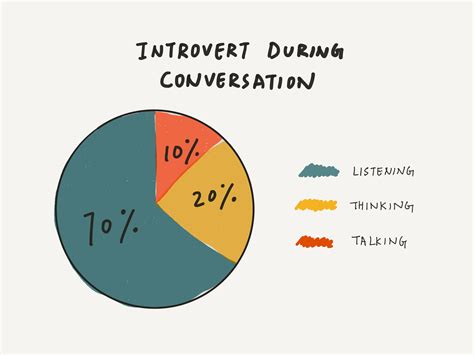
A collection of unfortunate mishaps, awkward encounters, and general calamities befell 23 individuals, transforming what started as ordinary days into a cascade of regrettable experiences, as documented in a viral online thread. From kitchen catastrophes to public embarrassment, the anecdotes shared paint a vivid picture of how quickly things can go wrong.
The internet, a repository of both triumphs and tribulations, has recently highlighted the latter through a compilation of personal accounts detailing exceptionally bad days. These stories, shared across social media platforms, showcase a universal truth: everyone, at some point, faces a day where nothing seems to go right. The article, initially featured on Yahoo Lifestyle, curates a selection of these tales of woe, offering a glimpse into the comedic, albeit often frustrating, reality of everyday life.
One recurring theme throughout these narratives is the element of surprise. Many of the recounted events unfold unexpectedly, catching their subjects off guard and leaving them scrambling to recover. Whether it’s a sudden wardrobe malfunction, a technological glitch with disastrous consequences, or an ill-timed encounter with an ex-partner, the element of surprise often exacerbates the situation, turning a minor inconvenience into a full-blown crisis.
The kitchen, often considered the heart of the home, appears to be a frequent battleground for bad days. Several stories involve culinary mishaps of epic proportions, ranging from exploding food items to accidental fires. One person recounts the experience of attempting to bake a cake, only to have it collapse in on itself, leaving behind a sticky mess and a deflated ego. Another describes a harrowing encounter with a pressure cooker, which resulted in a shower of scalding hot food and a kitchen coated in sauce. These culinary disasters serve as a reminder that even the simplest tasks can go awry, especially when Murphy’s Law is in full effect.
Beyond the confines of the home, the outside world presents its own unique set of challenges. Public transportation, in particular, emerges as a hotbed of potential disaster. Stories abound of missed trains, delayed buses, and crowded commutes, all contributing to a sense of mounting frustration. One individual recounts the experience of boarding the wrong train, only to find themselves stranded in an unfamiliar location miles from their intended destination. Another describes a particularly harrowing bus ride, complete with screaming children, overflowing garbage cans, and a malfunctioning air conditioning system.
Social interactions, too, prove to be fertile ground for awkward and embarrassing moments. Several stories involve encounters with former flames, often at the most inopportune times. One person describes running into their ex-boyfriend while on a date with someone new, resulting in an uncomfortable and strained conversation. Another recounts the experience of accidentally calling their ex’s parents instead of their own, leading to a series of awkward apologies and explanations. These social blunders highlight the delicate nature of human interaction and the potential for things to go horribly wrong, even with the best of intentions.
Technology, while often touted as a tool for convenience and efficiency, also emerges as a frequent source of frustration. Stories of malfunctioning devices, corrupted files, and accidental deletions abound, painting a picture of a world increasingly reliant on technology that is prone to failure. One person recounts the experience of losing an entire day’s worth of work due to a computer crash, leaving them scrambling to recreate their efforts. Another describes accidentally sending a private message to a group chat, resulting in a flurry of awkward apologies and embarrassed explanations. These technological mishaps serve as a reminder that even the most advanced tools are not immune to failure, and that a backup plan is always essential.
The shared experiences also shed light on the subjective nature of a “bad day.” What one person considers a minor inconvenience, another might perceive as a catastrophic event. The severity of a bad day often depends on individual circumstances, personality traits, and coping mechanisms. Some people are able to laugh off minor setbacks and move on with their day, while others tend to dwell on negative experiences, allowing them to snowball into larger problems.
The collective narratives presented in the article also highlight the importance of resilience and perspective. While it’s easy to get caught up in the negativity of a bad day, it’s important to remember that these experiences are temporary and that better days are ahead. The ability to maintain a sense of humor, to learn from mistakes, and to find silver linings in difficult situations are all crucial skills for navigating the ups and downs of life.
Moreover, the widespread sharing of these unfortunate experiences fosters a sense of community and camaraderie. Knowing that others have faced similar challenges can be comforting, reminding individuals that they are not alone in their struggles. The act of sharing these stories can also be cathartic, allowing people to process their emotions and find humor in their misfortunes.
The article also touches on the potential for bad days to serve as learning opportunities. By reflecting on what went wrong and identifying contributing factors, individuals can develop strategies for preventing similar situations from occurring in the future. For example, someone who experiences a culinary disaster might take a cooking class to improve their skills, while someone who loses data due to a computer crash might invest in a more reliable backup system.
However, it’s also important to acknowledge the potential for bad days to have a more significant impact on mental health. When negative experiences become chronic or overwhelming, they can contribute to feelings of anxiety, stress, and depression. In such cases, seeking professional help is essential. Therapists and counselors can provide individuals with coping mechanisms and strategies for managing difficult emotions and navigating challenging situations.
The “I Ate The Whole Thing” thread serves as a reminder that life is full of unexpected twists and turns, and that even the most carefully laid plans can go awry. While bad days are inevitable, they don’t have to define us. By maintaining a sense of humor, practicing resilience, and seeking support when needed, we can navigate these challenges and emerge stronger on the other side. The shared experiences also underscore the importance of empathy and compassion. Recognizing that everyone is fighting their own battles, and that even seemingly minor inconveniences can have a significant impact on someone’s day, can foster a more supportive and understanding environment.
The popularity of the article and the widespread sharing of these personal anecdotes suggest a deep-seated desire for connection and validation. In a world that often prioritizes success and achievement, it can be refreshing to see others openly acknowledging their failures and vulnerabilities. The willingness to share these stories, even the most embarrassing ones, creates a sense of authenticity and relatability that resonates with readers.
In conclusion, the collection of unfortunate mishaps chronicled in the “I Ate The Whole Thing” thread offers a humorous and relatable glimpse into the realities of everyday life. While bad days are inevitable, they don’t have to define us. By embracing resilience, maintaining a sense of humor, and seeking support when needed, we can navigate these challenges and emerge stronger on the other side. The shared experiences also underscore the importance of empathy and compassion, reminding us that we are all in this together.
Frequently Asked Questions (FAQs)
1. What is the “I Ate The Whole Thing” thread about?
The “I Ate The Whole Thing” thread, as highlighted by the Yahoo Lifestyle article, is a compilation of personal anecdotes shared online by 23 different individuals detailing their exceptionally bad days. These stories encompass a range of unfortunate events, from kitchen mishaps and public embarrassments to technological failures and awkward social encounters. The thread offers a relatable and often humorous look at the everyday challenges people face.
2. What are some common themes that emerged from the shared stories?
Several recurring themes emerged from the collected stories. These include:
- Surprise and Unexpectedness: Many incidents happened suddenly, catching people off guard.
- Culinary Disasters: Kitchen-related mishaps, such as exploding food or failed recipes, were frequently mentioned.
- Public Transportation Woes: Missed trains, delayed buses, and uncomfortable commutes were common occurrences.
- Awkward Social Interactions: Encounters with exes or embarrassing social blunders featured prominently.
- Technological Failures: Malfunctioning devices, data loss, and accidental messages added to the list of woes.
3. Why do these types of stories resonate with so many people?
These stories resonate with a broad audience because they reflect universal human experiences. Everyone has faced a bad day at some point, making the anecdotes relatable and validating. The shared misfortunes create a sense of community and camaraderie, reminding individuals that they are not alone in their struggles. The willingness to share embarrassing or vulnerable moments also fosters authenticity and connection.
4. Can experiencing a series of bad days affect a person’s mental health?
Yes, experiencing a series of bad days can negatively affect a person’s mental health. While occasional setbacks are normal, chronic or overwhelming negative experiences can contribute to feelings of anxiety, stress, and depression. It’s important to seek professional help if these feelings become persistent or interfere with daily life. Therapists and counselors can provide coping mechanisms and strategies for managing difficult emotions and navigating challenging situations.
5. What are some strategies for coping with a bad day and preventing future mishaps?
Several strategies can help individuals cope with bad days and prevent future mishaps:
- Maintain a Sense of Humor: Finding humor in difficult situations can help to diffuse tension and lighten the mood.
- Practice Resilience: Developing the ability to bounce back from setbacks is crucial for navigating life’s challenges.
- Learn from Mistakes: Reflecting on what went wrong and identifying contributing factors can help prevent similar situations from occurring in the future.
- Seek Support: Talking to friends, family, or a therapist can provide emotional support and perspective.
- Plan Ahead: Taking proactive steps to prevent potential problems, such as backing up data or preparing for travel delays, can minimize the risk of future mishaps.
- Embrace Imperfection: Accept that not everything will go as planned, and allow yourself grace.
6. What are the specific examples of some of the bad days encountered by these 23 people?
While the article compiles stories from 23 people, some examples of these situations include:
- Culinary Catastrophes: Several anecdotes mentioned failed attempts at cooking or baking, ranging from cakes collapsing to pressure cookers exploding and coating the kitchen with sauce.
- Transportation Troubles: Missed or wrong trains, buses encountering issues, and chaotic commutes were also recurring issues.
- Awkward Social Encounters: Running into ex-partners during dates with other people, or accidentally calling an ex-partner’s family members instead of your own.
- Tech Related Problems: Computer crashes resulting in lost work, sending embarrassing messages to the wrong chat groups or people, and other malfunctioning device incidents.
7. How does the act of sharing these stories benefit individuals and the online community?
Sharing these stories can be therapeutic for the individual, providing an outlet to process their emotions and find humor in their misfortune. It also fosters a sense of community and relatability, knowing that others have experienced similar challenges. This can create a more supportive and understanding online environment, where people feel less alone in their struggles.
8. What does the article suggest is the overall message or takeaway from these shared experiences?
The main takeaway from these shared experiences is that bad days are a universal part of life and that, while inevitable, they don’t have to define us. By embracing resilience, maintaining a sense of humor, learning from our mistakes, and seeking support when needed, we can navigate these challenges and emerge stronger. The article also emphasizes the importance of empathy and compassion for others, recognizing that everyone faces their own struggles, and even small inconveniences can significantly impact someone’s day.
9. How does the Yahoo Lifestyle article represent the original “I Ate The Whole Thing” thread?
The Yahoo Lifestyle article acts as a curated selection of anecdotes from the original “I Ate The Whole Thing” thread, choosing and highlighting the most relatable, humorous, or impactful stories shared by individuals. It presents these stories in a more accessible and digestible format for a wider audience, adding context and analysis to the collective experiences.
10. What is the role of perspective in how people perceive and respond to a bad day?
Perspective plays a crucial role in how people perceive and respond to a bad day. What one person considers a minor inconvenience, another might perceive as a catastrophic event. This perception is influenced by individual circumstances, personality traits, and coping mechanisms. Maintaining a positive perspective, focusing on the temporary nature of the situation, and finding silver linings can significantly impact how effectively someone copes with a bad day. Additionally, empathy towards others who might be having a difficult time can also change one’s own viewpoint and emotional response.









